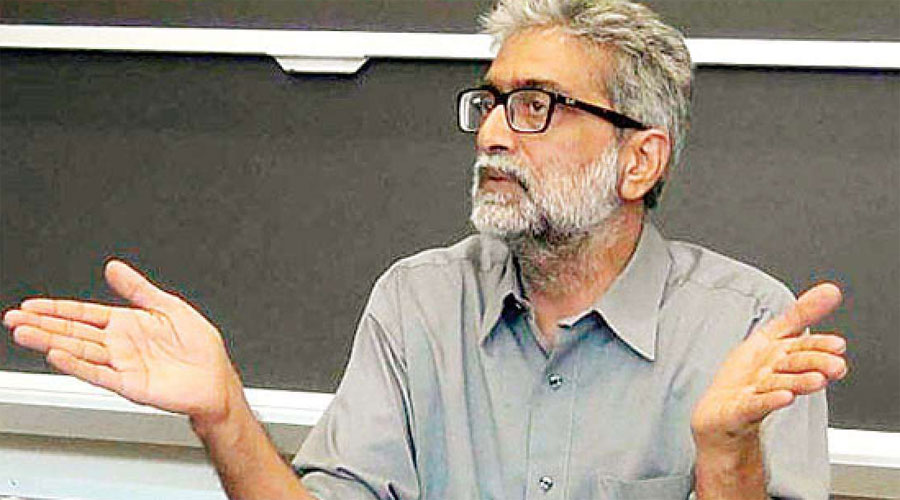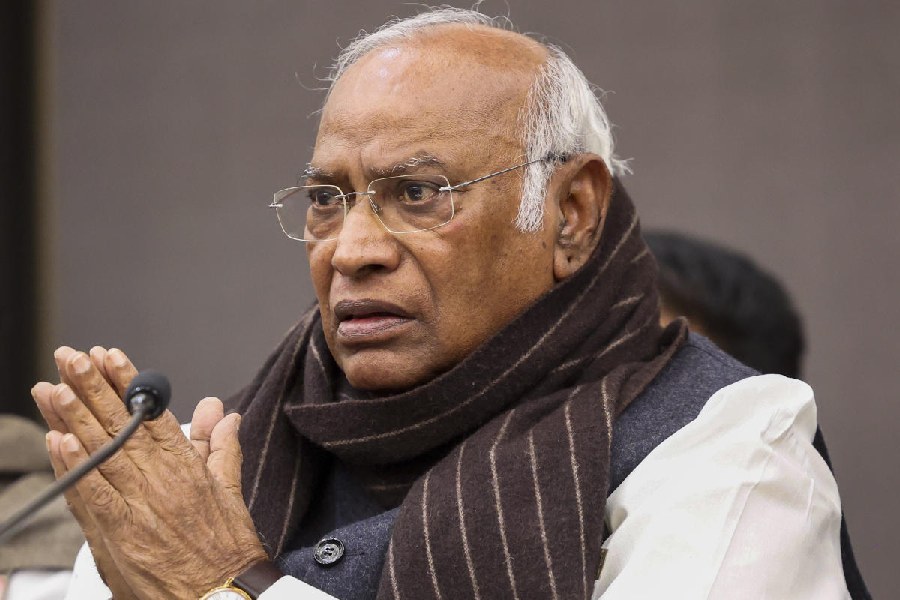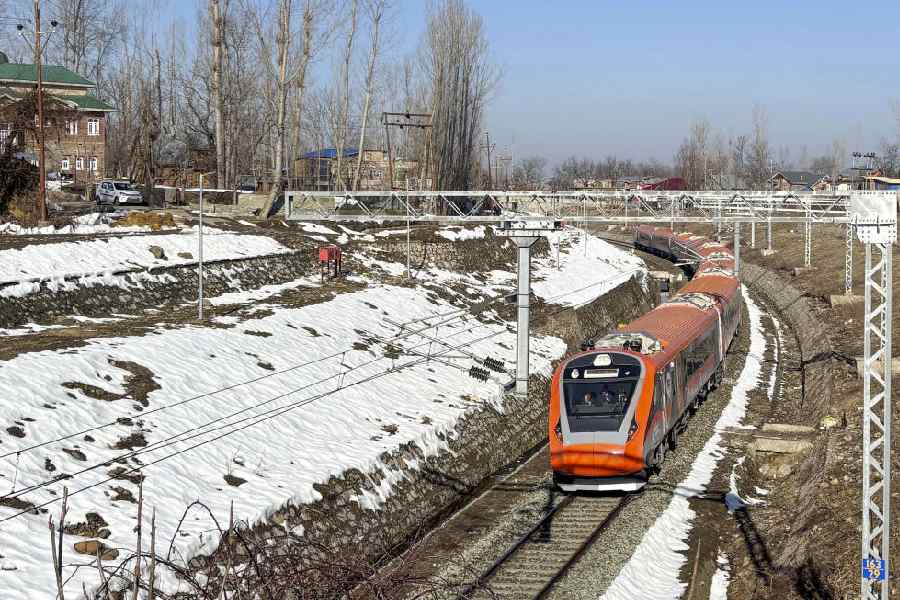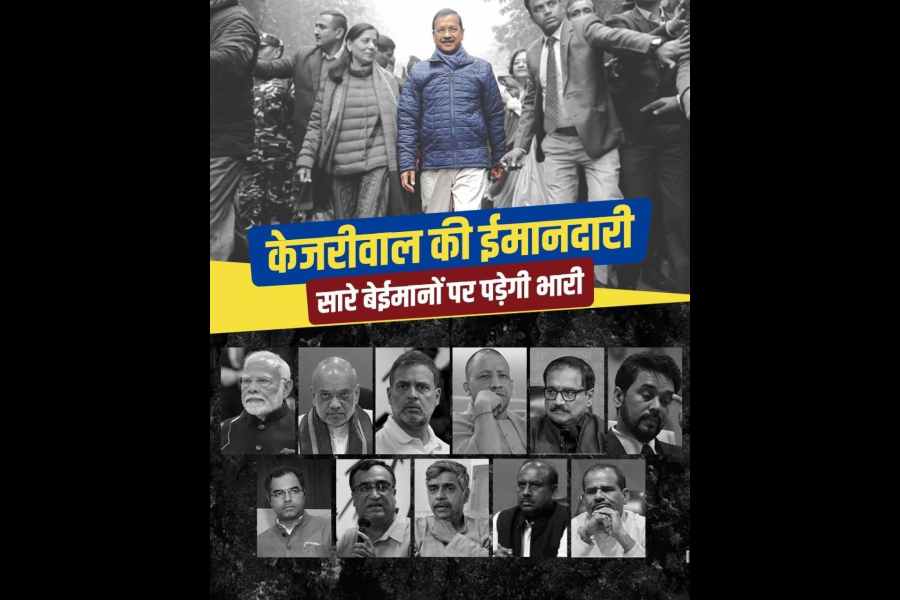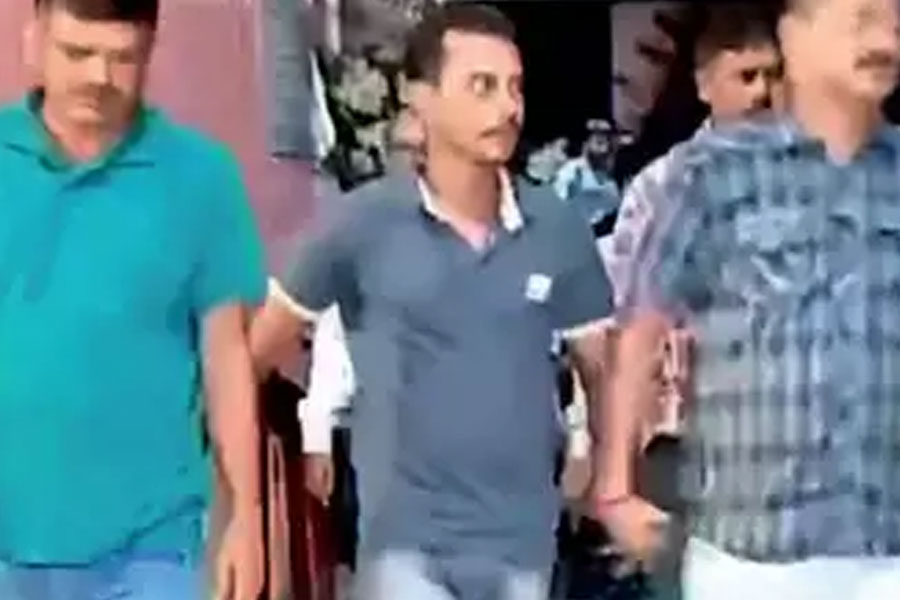The Supreme Court on Friday dismissed the National Investigation Agency’s plea to recall its November 10 order that directed Elgaar Parishad accused Gautam Navlakha to be transferred to house arrest within 48 hours, and gave the agency another 24 hours to comply.
The bench warned that it would take a “serious view” if the NIA -- ordered to shift the 70-year-old activist from Mumbai’s Taloja Jail to the CPI office in the western city --- tried to find “loopholes” in the court directions.
However, in a small concession to the agency, the court tightened the surveillance conditions on Navlakha, directing the sealing of the kitchen door leading to the exit and the locking of the grille gate at the main hall of the library on the first floor of the CPI office.
“We can take it another way --- you are taking loopholes to defy our orders, then we will take a serious view,” the bench of Justices K.M. Joseph and Hrishikesh Roy told the NIA, represented by solicitor-general Tushar Mehta and additional solicitor-general S.V. Raju.
“With the entire police force and the might of the State... is the State incapable of keeping in confinement one 70-year-old ailing man? Just look at the statement!” the bench added.
“We make it clear that the November 10 order shall be given effect to within 24 hours from the date of receipt of this order.... It’s your responsibility to see that the court’s orders are complied with.”
While Navlakha had petitioned the court accusing the NIA of violating the November 10 order, the agency had moved a plea objecting to the activist’s choice of residence — the library-cum-office of the CPI — claiming it posed serious security concerns.
Mehta said Navlakha was a security threat because of his alleged links with Maoists, Pakistani spy agency ISI and Kashmiri terrorists, but the bench rejected the argument. As Mehta repeatedly stressed that the building where Navlakha wanted to stay belonged to the CPI, Justice Joseph shot back: “Is the Communist Party of India not a registered political party?”
Mehta said that if this didn’t “shock the court’s conscience”, he had nothing more to say. Justice Joseph responded: “No, it doesn’t shock our conscience.” Senior advocate Nitya Ramakrishnan, appearing for Navlakha, underscored that the CPI itself condemned the Maoists.
“Anybody with basic understanding of contemporary politics will know that (the CPI) is a recognised party,” she said. Mehta said several jail inmates of the same age as Navlakha and with the same ailments did not have the luxury of house arrest. But the court was unconvinced.
At one point during his exchanges with Justice Joseph, Mehta threatened to leave the court. Persuaded by the judge to say, he sat down in his chair and said he wouldn’t leave but Raju would address the court. As Raju insisted on tightening the surveillance with additional CCTV cameras, Justice Joseph observed: “You want to make it worse than jail? You think he’s going to do that (breach security)? If he does it, we will view it seriously.” Ramakrishnan said the NIA’s fears were unfounded as the activist had earlier surrendered to the authorities after being kept under “house arrest” on Delhi High Court’s orders.

